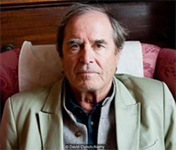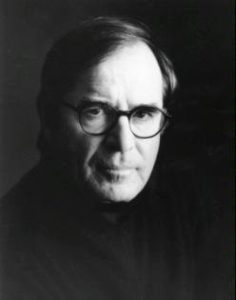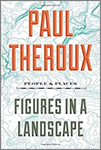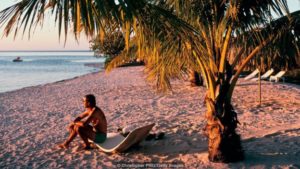Paul Theroux (Malawi): On travel and travel writing from BBC
The godfather of contemporary travel writing tells us about the trip that made him fall in love with the world, as well as a reborn Hawaii and the influence of his son, Louis.
by Alexander Bisley
BBC/Travel
14 June 2018
•

(Credit: David Clynch/Alamy)
Paul Theroux (Malawi 1963-65) is the godfather of contemporary travel writing, known for his transporting, first-person classics such as Ghost Train to the Eastern Star, Deep South, The Tao of Travell and Dark Star Safari.
“Travel in an uncertain world. . . has never seemed
to me more essential, of greater importance
or more enlightening.”
In his new collection of travel essays, Figures in a Landscape, Theroux is once again bracingly perceptive and enticing on places and people. He is ever captivating on Africa, the continent that gave him a lifelong love of travel. Hawaii, one of his two homes ─ and where he conducts this interview from ─ is a particularly ruminative essay. “I am still trying to make sense of it all, but the longer I live here, the more the mystery deepens.” He also speaks about Hawaii ‘being reborn’, bizarre Albania, Cook Islands parrot fish and the influence of his son, Louis.
At 77, Theroux believes heaven is travel and travel writing. “While weighing the risks and being judicious, travel in an uncertain world, in a time of change, has never seemed to me more essential, of greater importance or more enlightening,” he writes.
Q: What’s the trip that made you fall in love with the world?
I suppose leaving home in late 1963 to travel to Africa to teach, and finding in Nyasaland (later Malawi) everything I hoped for: good people who became friends, a new language to learn, a lovely landscape, a liberating sense of solitude and a great deal to discover. Africa has changed, and so have I, and so has the world, but in a way that is how we live our lives, charting our progress. And those of us who are writers observing these changes always have something new to write about.
Q: In Figures in a Landscape, memorable Africa essays include Malawi, Zimbabwe and Graham Greene’s relationship with the continent. What’s one of your favourite qualities about Africa?
Still its emptiness and its isolation: the wild spaces, the great isolation in places like the Congo. Many of these places are still so dangerous that no-one visits. Many parts of Africa have become forgotten, or overlooked. They await a new conqueror, unfortunately.
Q: What’s the most bizarre place you’ve been?
Of the great number rattling around in my mind, I think I’d nominate Albania, circa 1994, where I arrived on a ferry from Bari, Italy, to find a barely recognizable country; people pleading for money or food, broken roads, sinister meals and broken windows. “When the government fell, people were so excited they smashed all the windows,” I was told. And the free press was filled with photographs of naked women, forbidden under the Hoxha/Shehu regime. Also, the hillsides covered with bomb shelters – every person in Albania had a place in a bomb shelter. I hunkered down in Tirana, rolling my eyes. I wrote about this in The Pillars of Hercules.
“Those of us who are writers observing these changes
always have something new to write about.”
Q: “You are a trigger happy little bastard,” Hunter S Thompson once wrote affectionately to you. Did he influence your approach to travel at all?
He was rather a timid traveller but an energetic writer, a paradoxical soul. At his best he was brilliant. But he travelled very little, saying “It’s a full-time job being a drug addict.”
Q: What’s the one thing you never leave home without?
Lately, a package of green tea, usually Lung Ching Chai/Dragon Well Tea. You might find it in Hangzhou where it is picked, but not in any other place I’ve been.
Q: What’s the most memorable meal you’ve had on the road?
I was paddling my kayak through a lagoon in the Cook Islands and was very hungry. When I got to shore, a fisherman held up a half a dozen parrot fish he had just caught, still brilliantly coloured. “Take one” he said. I brought this fish to the village where I was staying, and saw a man standing at a smoking grill, but he had no food. “Parrot fish!” he said. I handed him the fish and very soon was sharing it with him.
In his new collection of travel essays, Figures in a Landscape, Theroux is bracingly perceptive and enticing on places and people (Credit: Christopher Pillitz/Getty Images)
Q: What’s the one book you can’t live without/the book that inspired you to pack your travel bags?
I answered this question by writing The Tao of Travel – listing and describing the hundreds of books I love and can’t live without.
When I was very young – 10 or 11 – I read travel books by Richard Halliburton, The Royal Road to Romance and others. They don’t stand up to rereading, but they thrilled me then. For example, his swimming through the Panama Canal, his night at the Taj Mahal.
A book I admire for many reasons is [Apsley] Cherry-Garrard’s The Worst Journey in the World, about [Robert Falcon] Scott’s Antarctic expedition. Cherry-Garrard was a nearsighted and very young man, but he went on the Winter Journey to discover the rookery of the emperor penguins, and he wrote at length about Scott’s complex temperament. A magnificent book I have reread many times.
Q: One of the most memorable encounters you’ve had while travelling?
Meeting a Buddhist monk in Burma, named Tapa Snim, all of whose possessions easily fitted into a small bundle that he carried on a stick. And just the day before he had been robbed of what little money he had by a thief in Rangoon.
Q: Give us one piece of essential travel advice to share with our readers? (Don’t be ‘oafish budget-conscious backpackers’ like the ones annoying your driver Mustafa in Dark Star Safari, right?)
Be patient.
Q: I’m cut up about a man of such empathy and contribution being gone. Can you tell us about your Hawaii lunch with Tony Bourdain on Parts Unknown?
Tony Bourdain was a wonderful, funny, widely travelled man: the ideal dinner companion, not only a great talker but an attentive listener. He was generous, a great raconteur, in the peak of health, and appeared full of confidence. We talked together for three hours, on camera and off, and I heard no hint of a dark side. In fact, he was one of those people – one of the few I’ve met – who seemed to live a charmed life: handsome, clever and accomplished, and great-hearted. Learning of Bourdain’s suicide, I thought of Henry James who once said, “Never say you know the last word about any human heart.”
Q: Tell us about your son, Louis Theroux
Louis is wonderful. He’s always been so witty and clever. My children are the light of my life. I think Marcel writes great novels, Louis makes great programmes. I’m so proud of them. If you have very bright children, they keep you au courant. Books that I might have missed, movies that I should see, music that I should listen to. They really educate you. They keep enlightening you. They stimulate my imagination.
Paul Theroux’s essential piece of travel advice: be patient (Credit: Christopher Pillitz/Getty Images)
Q: What’s the coolest mode of transport you’ve taken?
Supersonic British Airways jet from New York to London and back, in the year it was taken out of service. Nothing can compare with that.
Q: If someone was visiting your town, what’s the one thing you’d show them?
Depends on the person.
Q: What would you show me?
In Hawaii, I would take you on a hike to Kaena Point to see the surf pounding the shore, the cliffs above and the nesting Laysan albatrosses. On Cape Cod, I would suggest paddling a kayak about a mile into Nantucket Sound and taking a trip along the coast, because you don’t really understand such a place until you view it from the sea, looking towards land, seeing the beauties of nature and the hubristic monstrosities of humans.
“I am still trying to make sense of it all,
but the longer I live here,
the more the mystery deepens.”
Q: Figures in a Landscape has a thoughtful essay on Hawaii: “Hawaii is a stark illustration of Proust’s melancholy observation: ‘The true paradises are the paradises we have lost’.” Is Hawaii still paradise?
Figures in a Landscape has a thoughtful essay on Hawaii: “Hawaii is a stark illustration of Proust’s melancholy observation: ‘The true paradises are the paradises we have lost’.” Is Hawaii still paradise?
No, but Hawaii is being reborn, by way of an erupting volcano, a vast molten lava flow, a sky full of volcanic ash and the lesson that nature is full of surprises and is not to be trifled with. Many island paradises began with a volcanic eruption – a great cauterising cleansing and then the cooling of lava to became a land, entirely new, virginal one could say.

John, A magnificent interview which allows us better understand and appreciate the “grandfather of contemporary travel writing!” Thanks for sharing.
Yes. I really appreciated this interview John.
I also appreciated the Info about Peace Corps and your reviews.
Thanks for posting it. I am also very sad about Tony Bourdain. His ability to be at home anywhere with anyone was inspiring.